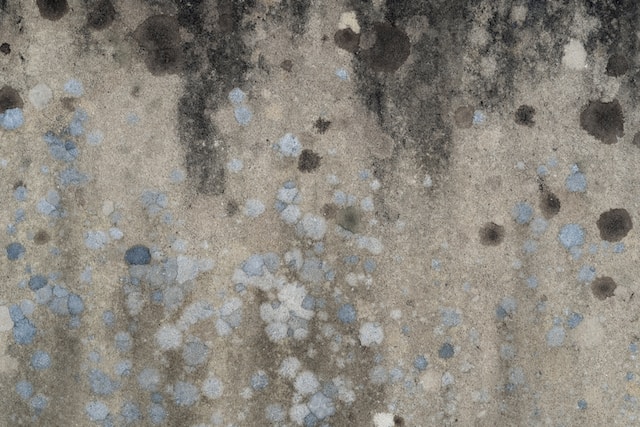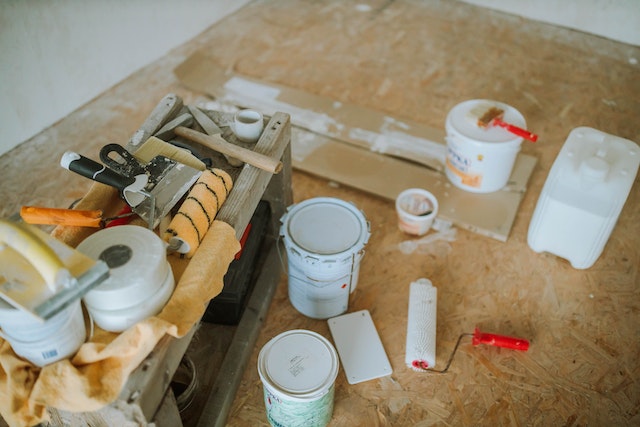 Residents of rental properties may not have to worry about some of the risks that come with home ownership, but that does not mean that they are immune to accidents that can happen.
Residents of rental properties may not have to worry about some of the risks that come with home ownership, but that does not mean that they are immune to accidents that can happen.
While homeowners have to worry about water damage on the property they own, renters do not own the place in which they live. This means that filing an insurance claim after water damage falls on someone else’s shoulders, like the landlord or a property management company.
However, water can still damage your personal property. Belongings are susceptible to damage caused by water just as much as the structural elements of the building. This means that you could have possessions ruined completely or at least partially destroyed. Household appliances, furniture, valuables, carpets, and other items are at risk.
Causes of Water Damage
When you live in an apartment, townhome, or rented home, there are plenty of things that can go wrong that will lead to water or flood damage to your possessions.
Burst Pipe
Burst pipes on the property could spill water into the living spaces, getting building materials and possessions wet. In the winter, pipes freeze and break if they are not properly insulated or the building is not warm enough to prevent this issue. Old pipes may have corroded and ended up leaking.
Backed Up Sewage
If sewer lines back up on the property, the overflow could spill dangerously toxic water into your rental unit. This puts your personal belongings not just at risk of getting wet but becoming seriously infected with toxic chemicals.
Leaking Appliances
Appliances in your unit such as washing machines, dishwashers, and refrigerators use water regularly. If maintenance is poor, these machines could leak or break and cause water damage.
Natural Disasters
If extreme weather events such as a flood or heavy rainstorm occur, your possessions could be in danger of water damage. If a window breaks or you live on the ground floor, water could spill in quickly. Ceiling leaks could develop if there are issues with the roof of the property.
What Does Renters Insurance Cover/Not Cover?
Knowing who is responsible for what types of damage in a rental unit is another crucial aspect of the claims process. Since the renters do not own the property in which they live, they do not have access to homeowners insurance, which can help owners pay for the cost of water damage restoration for covered perils. Instead, these individuals have to pay for renter’s insurance, if the landlord’s policy dictates it.
Personal Property
Renters insurance covers personal property in most cases of water damage. This means that any possessions that belong to you and not the property owner could be repaired or replaced under the renters insurance policy.
As long as the incident that caused the damage is a covered peril, then your water damage claim will likely be successful.
When is Personal Property Not Covered?
It is important to know that the typical renters insurance policy has exceptions for what is considered a covered event. If water damage occurs to your possessions, you will need to find out if your renters policy covers the losses.
Covered perils listed in your policy may include a broken pipe, leaking roof, or faulty appliance. Your water damage claim depends on the type of incident and if there is personal negligence involved in the leak. Did you leave a window open during a rainstorm? Was there a clogged drain that you failed to clear? If you could have prevented the damage, your insurance claim will likely fail.
Another circumstance where your renter’s insurance policy may not be enough is in the event of a flood. Flood insurance is a separate type of coverage that you should consider obtaining, especially if you live in an area that is prone to flooding. Additionally, replacing your items may not be covered if there is a sump pump failure or sewage backup. You may need to have additional coverage for those incidents to have your personal belongings restored.
What About Structural Issues?
When water damage occurs in your rental unit, there could be issues with the structural materials of the building. Ceilings, walls, floors, or appliances that came with the complex are not your responsibility and therefore are not covered by renters insurance policies.
Instead, the landlord or property owner’s policy will have to take care of insurance claims. That is one of the advantages of renting is that you won’t have to worry about paying for damages to the structure unless your negligence caused the water damage.
Restoring Your Possessions
While homeowners may turn to a Portland water damage restoration company to restore the property to its pre-loss condition, that responsibility falls to your landlord or owner. All you can do is see if your renters insurance coverage applies to your possessions that were ruined.
However, knowing how to restore items yourself could be helpful. Insurers may not be able to cover water damage in every circumstance, so you need to be prepared.
Water Extraction and Drying
Responding quickly is the key to preserving your belongings after a water damage incident. Using wet vacuums, manual pumps, fans, air movers, and even hair dryers can extract the standing water and evaporate moisture out of the damaged materials. The more you can dry out the affected items, the better chance you will have to protect against further damage.
Sanitation
Some of your possessions may need to be cleaned to prevent mold and bacterial growth and restore them to their previous condition. You may need to create a cleaning solution with a cup of detergent or household cleaner per gallon of warm water to properly scrub the affected items. If this fails, you might consider using a chlorine bleach mixture instead.
Prevent an Extra Cost by Responding Immediately
If water damage caused harm to your personal items as a renter, you need to take immediate action to restore the possessions. Otherwise, you may end up having to throw away the item and pay to replace it if your renters insurance does not cover the incident. Call your insurance company, find out what is covered by your policy, and start the water damage restoration process quickly to save your personal property.


